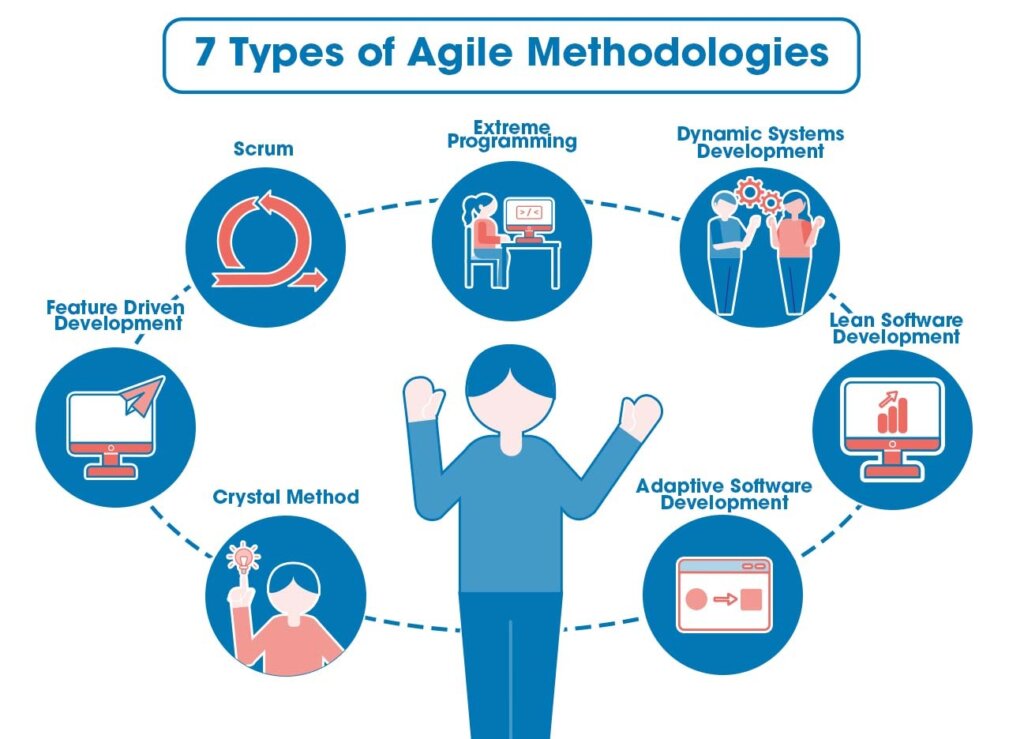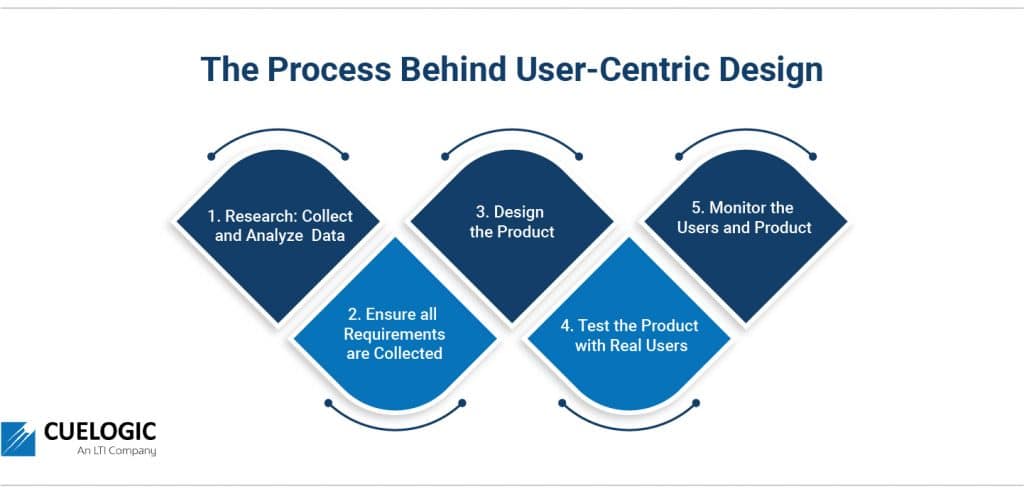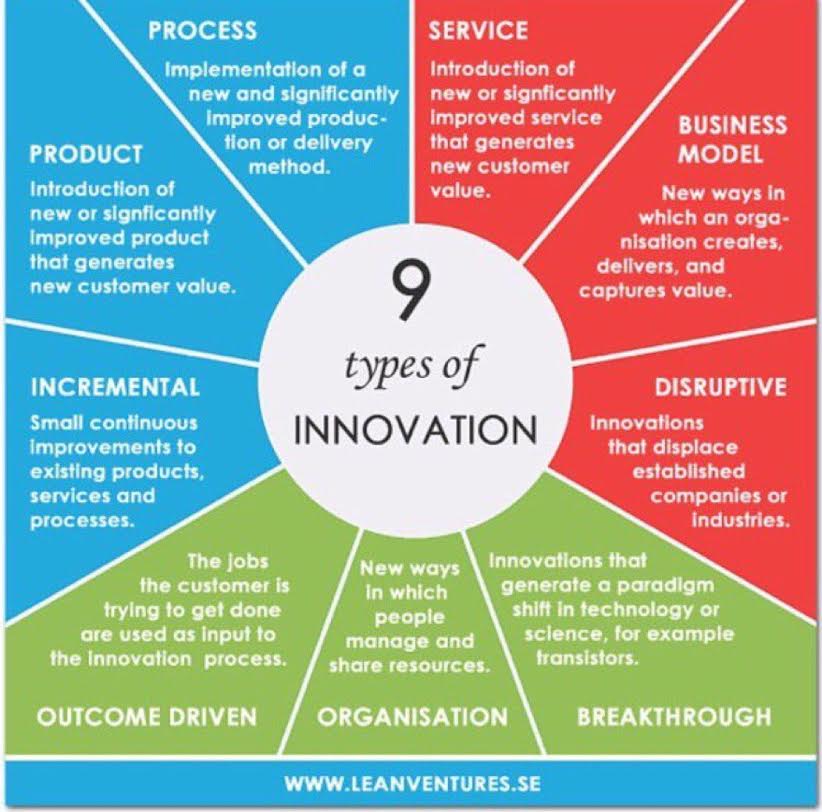Unlocking Innovation through Agile Methodologies
Agile methodologies have revolutionized the way SaaS startups approach project management, fostering a culture of innovation and adaptability. By embracing agile principles, startups can respond quickly to changing market conditions, customer needs, and technological advancements. This flexibility is particularly crucial in the SaaS industry, where innovation is the lifeblood of success. Agile methodologies enable startups to iterate rapidly, experiment with new ideas, and continuously improve their products and services.
One of the primary benefits of agile methodologies is their focus on customer-centricity. By prioritizing customer needs and feedback, startups can develop products that meet the demands of their target market. This approach also encourages collaboration and communication among team members, stakeholders, and customers, ensuring that everyone is aligned and working towards a common goal. Furthermore, agile methodologies promote a culture of experimentation, where failure is seen as an opportunity for growth and learning.
For SaaS startups, adopting agile methodologies can be a game-changer. It enables them to stay ahead of the competition, respond to changing market conditions, and drive innovation. By embracing agile principles, startups can create a culture of continuous improvement, experimentation, and customer-centricity, ultimately leading to the development of innovative products and services that meet the evolving needs of their customers. As the SaaS industry continues to evolve, it’s essential for startups to prioritize agile methodologies as a key component of their project management innovation strategies.
By incorporating agile methodologies into their project management approach, SaaS startups can unlock innovation, drive growth, and stay ahead of the competition. Whether it’s through Scrum, Kanban, or Lean, agile methodologies offer a powerful framework for startups to develop innovative products and services that meet the needs of their customers. As the SaaS industry continues to evolve, it’s clear that agile methodologies will play a critical role in driving innovation and success.
Streamlining Processes with AI-Powered Tools
Artificial intelligence (AI) is transforming the way SaaS startups approach project management, enabling them to streamline processes, enhance collaboration, and gain data-driven insights. AI-powered tools are becoming increasingly popular in the SaaS industry, and for good reason. These tools can automate repetitive tasks, freeing up team members to focus on high-value activities that drive innovation and growth.
One of the most significant benefits of AI-powered tools is their ability to enhance collaboration and communication among team members. Tools like Trello, Asana, and Jira use AI to analyze team workflows, identify bottlenecks, and provide recommendations for improvement. This enables teams to work more efficiently, respond to changing priorities, and deliver high-quality products and services.
AI-powered tools also provide SaaS startups with valuable insights into their project management processes. By analyzing data from various sources, these tools can identify trends, patterns, and areas for improvement. This enables startups to make data-driven decisions, optimize their strategies, and drive growth. For example, tools like Google Analytics and Mixpanel can help startups track key metrics, such as user engagement, retention, and revenue growth.
In addition to enhancing collaboration and providing data-driven insights, AI-powered tools can also help SaaS startups automate repetitive tasks. Tools like Zapier and Automate.io use AI to automate workflows, freeing up team members to focus on high-value activities that drive innovation and growth. This enables startups to scale more efficiently, respond to changing market conditions, and deliver high-quality products and services.
As the SaaS industry continues to evolve, it’s clear that AI-powered tools will play a critical role in driving innovation and success. By leveraging these tools, SaaS startups can streamline their processes, enhance collaboration, and gain valuable insights into their project management processes. Whether it’s through automation, data analytics, or collaboration, AI-powered tools are essential for any SaaS startup looking to drive growth and stay ahead of the competition.
Incorporating AI-powered tools into their project management approach is a key component of SaaS startup project management innovation strategies. By embracing these tools, startups can unlock new levels of efficiency, productivity, and innovation, ultimately driving growth and success in the competitive SaaS market.
How to Foster a Culture of Innovation in Your SaaS Startup
Fostering a culture of innovation is crucial for SaaS startups to stay ahead of the competition and drive growth. A culture of innovation encourages experimentation, creativity, and continuous learning, enabling startups to develop innovative products and services that meet the evolving needs of their customers. To create a culture of innovation, SaaS startups must empower their team members, embrace failure, and promote continuous learning.
Empowering team members is essential for fostering a culture of innovation. When team members are given the autonomy to make decisions and take ownership of their work, they are more likely to think creatively and develop innovative solutions. SaaS startups can empower their team members by providing them with the necessary resources and support, encouraging them to take risks, and recognizing and rewarding their achievements.
Embracing failure is also critical for fostering a culture of innovation. Failure is an inevitable part of the innovation process, and SaaS startups must learn to view failure as an opportunity for growth and learning. By embracing failure, startups can encourage their team members to take risks and experiment with new ideas, leading to the development of innovative products and services.
Promoting continuous learning is another key aspect of fostering a culture of innovation. SaaS startups must provide their team members with opportunities for continuous learning and professional development, enabling them to stay up-to-date with the latest trends and technologies. This can be achieved through training programs, workshops, and conferences, as well as by encouraging team members to attend industry events and share their knowledge with others.
By empowering team members, embracing failure, and promoting continuous learning, SaaS startups can create a culture of innovation that drives growth and success. A culture of innovation is essential for SaaS startups to stay ahead of the competition and develop innovative products and services that meet the evolving needs of their customers. By incorporating these strategies into their project management approach, SaaS startups can unlock new levels of innovation and drive business success.
Incorporating a culture of innovation into SaaS startup project management innovation strategies is critical for driving growth and success. By fostering a culture of innovation, SaaS startups can develop innovative products and services that meet the evolving needs of their customers, stay ahead of the competition, and drive business success.
Leveraging Data Analytics for Informed Decision-Making
Data analytics plays a crucial role in SaaS startup project management, enabling startups to make informed decisions that drive growth and success. By leveraging data analytics, startups can track key metrics, identify trends, and optimize their strategies to meet the evolving needs of their customers. Tools like Google Analytics, Mixpanel, and ChartMogul provide startups with valuable insights into their project management processes, enabling them to make data-driven decisions that drive business success.
One of the primary benefits of data analytics in SaaS startup project management is its ability to provide real-time insights into project performance. By tracking key metrics such as user engagement, retention, and revenue growth, startups can identify areas for improvement and optimize their strategies to drive growth. For example, Google Analytics can help startups track website traffic, conversion rates, and user behavior, enabling them to make data-driven decisions that drive business success.
Data analytics also enables SaaS startups to identify trends and patterns in their project management processes. By analyzing data from various sources, startups can identify areas for improvement and optimize their strategies to meet the evolving needs of their customers. For example, Mixpanel can help startups track user behavior, identify trends, and optimize their strategies to drive growth.
In addition to providing real-time insights and identifying trends, data analytics also enables SaaS startups to optimize their project management processes. By analyzing data from various sources, startups can identify areas for improvement and optimize their strategies to drive growth. For example, ChartMogul can help startups track revenue growth, identify trends, and optimize their strategies to drive business success.
By leveraging data analytics, SaaS startups can make informed decisions that drive growth and success. Data analytics provides startups with valuable insights into their project management processes, enabling them to optimize their strategies and drive business success. As the SaaS industry continues to evolve, it’s clear that data analytics will play a critical role in driving innovation and success.
Incorporating data analytics into SaaS startup project management innovation strategies is critical for driving growth and success. By leveraging data analytics, startups can make informed decisions that drive business success, optimize their project management processes, and stay ahead of the competition.
Effective Communication Strategies for Remote Teams
Managing remote teams in SaaS startups can be challenging, but effective communication strategies can help promote collaboration and productivity. With the rise of remote work, it’s essential for SaaS startups to have a solid communication plan in place to ensure that team members are connected and working towards a common goal.
One of the most significant challenges of managing remote teams is communication. Without face-to-face interactions, it can be difficult to convey ideas, provide feedback, and build trust. However, with the right tools and strategies, remote teams can communicate effectively and stay connected. Tools like Slack, Zoom, and Skype can help facilitate remote communication, enabling team members to collaborate and share ideas in real-time.
Another key aspect of effective communication in remote teams is transparency. SaaS startups must be transparent about their goals, expectations, and priorities to ensure that team members are aligned and working towards a common goal. Regular check-ins, progress updates, and open communication channels can help promote transparency and build trust among team members.
Adaptability is also crucial for remote teams in SaaS startups. With team members working from different locations and time zones, it’s essential to be flexible and adaptable to ensure that communication flows smoothly. SaaS startups can use tools like Trello or Asana to manage projects and tasks, enabling team members to stay organized and focused.
In addition to using the right tools and strategies, SaaS startups must also prioritize communication in their project management approach. By incorporating effective communication strategies into their project management innovation strategies, SaaS startups can promote collaboration, productivity, and growth. Whether it’s through regular check-ins, progress updates, or open communication channels, effective communication is critical for remote teams in SaaS startups.
By prioritizing communication and using the right tools and strategies, SaaS startups can overcome the challenges of managing remote teams and promote collaboration, productivity, and growth. Effective communication is essential for remote teams in SaaS startups, and by incorporating it into their project management approach, startups can drive business success and stay ahead of the competition.
Embracing Design Thinking for User-Centric Product Development
Design thinking is a powerful approach to product development that can help SaaS startups create user-centric products that meet customer needs and drive business success. By embracing design thinking, startups can develop products that are intuitive, user-friendly, and meet the evolving needs of their customers. Design thinking is a human-centered approach to product development that involves empathizing with customers, ideating solutions, prototyping, and testing.
One of the primary benefits of design thinking is its ability to help startups develop products that meet customer needs. By empathizing with customers and understanding their pain points, startups can develop products that solve real-world problems and meet customer needs. Design thinking also enables startups to develop products that are intuitive and user-friendly, reducing the risk of product failure and increasing customer satisfaction.
Design thinking is also a key component of SaaS startup project management innovation strategies. By incorporating design thinking into their project management approach, startups can develop products that are user-centric, intuitive, and meet customer needs. Design thinking can also help startups to identify and prioritize customer needs, develop solutions that meet those needs, and test and refine their products to ensure they meet customer expectations.
Tools like InVision, Figma, and Sketch can help startups to develop and test their products using design thinking principles. These tools enable startups to create prototypes, test and refine their products, and gather feedback from customers. By using these tools, startups can develop products that are user-centric, intuitive, and meet customer needs.
In addition to using design thinking tools, startups can also incorporate design thinking principles into their project management approach. By prioritizing customer needs, developing solutions that meet those needs, and testing and refining their products, startups can develop products that drive business success. Design thinking is a powerful approach to product development that can help SaaS startups to develop user-centric products that meet customer needs and drive business success.
By embracing design thinking, SaaS startups can develop products that are user-centric, intuitive, and meet customer needs. Design thinking is a key component of SaaS startup project management innovation strategies, enabling startups to develop products that drive business success and meet customer needs.
Managing Stakeholder Expectations and Priorities
Managing stakeholder expectations and priorities is crucial for SaaS startups to ensure that their project management innovation strategies are aligned with the needs of their stakeholders. Stakeholders can include customers, investors, partners, and team members, each with their own expectations and priorities. Effective communication, transparency, and adaptability are essential for managing stakeholder expectations and priorities.
One of the primary challenges of managing stakeholder expectations and priorities is balancing competing demands. SaaS startups must prioritize stakeholder needs, manage competing demands, and ensure that their project management innovation strategies are aligned with the needs of their stakeholders. This can be achieved by establishing clear communication channels, setting realistic expectations, and being transparent about priorities and progress.
Another key aspect of managing stakeholder expectations and priorities is adaptability. SaaS startups must be able to adapt to changing stakeholder needs and priorities, and adjust their project management innovation strategies accordingly. This can be achieved by being flexible, responsive, and proactive in addressing stakeholder concerns and needs.
Tools like Trello, Asana, or Jira can help SaaS startups to manage stakeholder expectations and priorities by providing a clear overview of project progress, priorities, and deadlines. These tools can also help startups to communicate effectively with stakeholders, set realistic expectations, and manage competing demands.
In addition to using project management tools, SaaS startups can also incorporate stakeholder management principles into their project management innovation strategies. By prioritizing stakeholder needs, managing competing demands, and being transparent about priorities and progress, startups can ensure that their project management innovation strategies are aligned with the needs of their stakeholders.
By managing stakeholder expectations and priorities effectively, SaaS startups can ensure that their project management innovation strategies are successful, and that they are able to deliver value to their stakeholders. Effective stakeholder management is critical for SaaS startups to achieve their goals, drive growth, and stay ahead of the competition.
Scaling Your SaaS Startup with Strategic Partnerships
Strategic partnerships are a key component of SaaS startup project management innovation strategies, enabling startups to scale their business, expand their reach, and drive growth. By partnering with other companies, SaaS startups can leverage each other’s strengths, share resources, and create new opportunities for growth. Strategic partnerships can take many forms, including collaborations, integrations, and co-marketing initiatives.
One of the primary benefits of strategic partnerships is the ability to expand your reach and improve your offerings. By partnering with other companies, SaaS startups can tap into new markets, gain access to new customers, and enhance their products and services. For example, a SaaS startup that offers a marketing automation platform might partner with a company that offers a customer relationship management (CRM) platform to create a more comprehensive solution for customers.
Another key benefit of strategic partnerships is the ability to drive growth and revenue. By partnering with other companies, SaaS startups can create new revenue streams, increase their customer base, and drive business growth. For example, a SaaS startup that offers a project management platform might partner with a company that offers a time tracking platform to create a more comprehensive solution for customers.
Tools like PartnerStack, Partnerize, or Impact can help SaaS startups to manage their strategic partnerships, track partner performance, and optimize their partnership strategies. These tools can also help startups to identify new partnership opportunities, manage partner relationships, and create more effective partnership strategies.
In addition to using partnership management tools, SaaS startups can also incorporate partnership principles into their project management innovation strategies. By prioritizing partnerships, managing partner relationships, and creating more effective partnership strategies, startups can drive growth, expand their reach, and improve their offerings.
By scaling their business through strategic partnerships, SaaS startups can achieve their goals, drive growth, and stay ahead of the competition. Strategic partnerships are a key component of SaaS startup project management innovation strategies, enabling startups to leverage each other’s strengths, share resources, and create new opportunities for growth.







